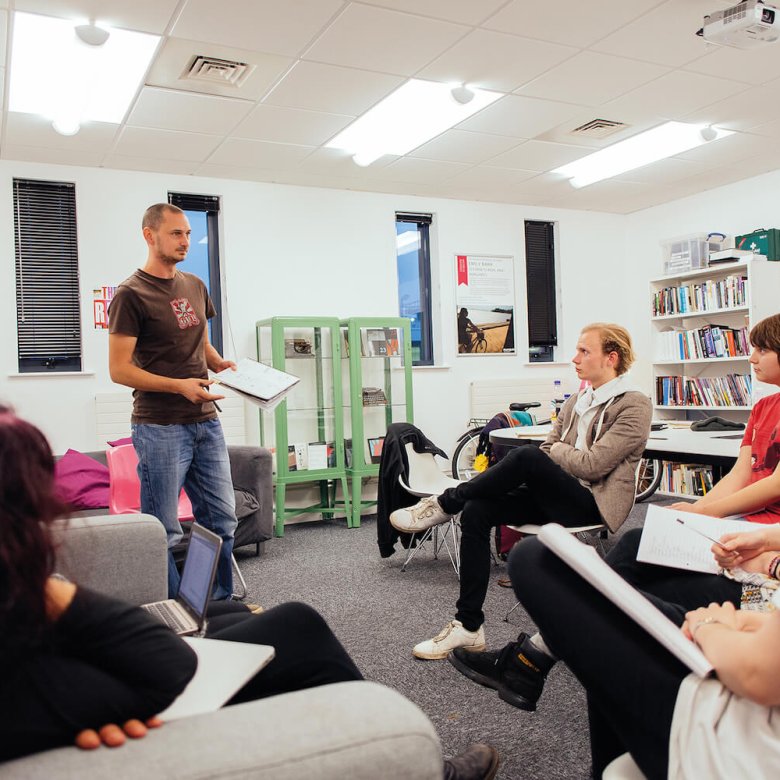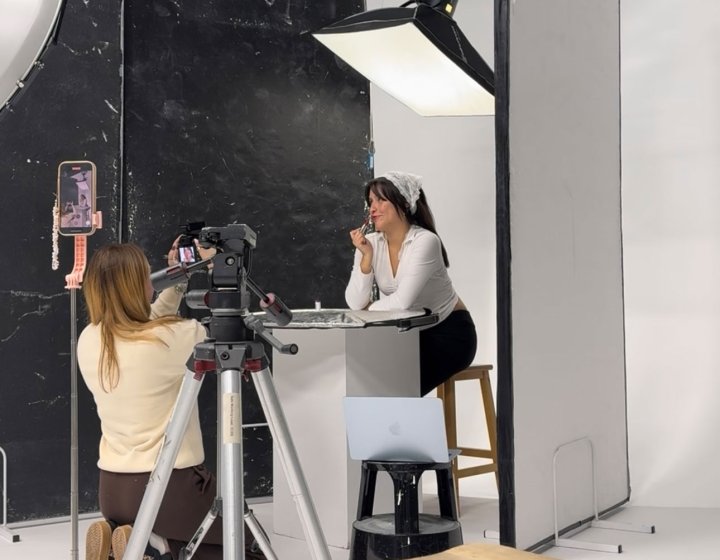Dealing with stress and anxiety surrounding exam and deadline season
08 April 2025

This article was written by Business Management BSc(Hons) student Megan.
In the whirlwind of exam season, stress can become an unwelcome companion for many students. The pressure to perform, coupled with the sheer volume of material to revise, can leave most feeling overwhelmed. So here are a couple of my top tips and tricks, which have best help me to navigate through these tricky periods...
WHAT AM I TRYING TO ACHIEVE?
Figuring out where to begin with revision can often be the most challenging aspect. One effective approach is to start by clearly defining your goals and tasks. Personally, I've found it incredibly helpful to compile a comprehensive list of everything I need to accomplish, prioritising major objectives, such as a specific subject or modules. From there, I break down these larger tasks into smaller, more manageable ones, such as completing practice papers, reading materials, creating mind maps and organising notes into revision cards. Once I've outlined all these tasks, I craft a revision timetable often in a diary, or on a large whiteboard that incorporates both short-term and long-term goals. Each week I will aim to devote an equal amount of time to each of my major objectives, by completing 2-5 day predetermined short term tasks. At the end of the week, I will reflect on my week and plan for my next week accordingly. Reflecting on my progress at the end of each week allows me to fine-tune my approach for the following week. This structured approach not only provides clarity but also transforms daunting long-term tasks into achievable milestones, making the progress tangible and very rewarding.
WHERE SHOULD I BE WORKING?
Discovering the ideal study environment is a pivotal part of the revision process. Throughout my A-Level studies, I found myself confined to my bedroom for much of the time, due to the constraints of COVID-19. Personally, I found this challenging, as I was very easily distracted by everything else in my room, except for the work I should have been completing. I strongly recommend finding somewhere with minimal distractions that you can associate solely with working, whether it be in a café, a library, or a different room within your house. Establishing a dedicated workspace free from distractions fosters productivity, enhancing your ability to concentrate and engage effectively with your revision materials. Furthermore, when working in a café 'till they close, you often find that there are discounted cakes at the end of the day that you can treat yourself to!
HOW DO I MINIMISE DISTRACTIONS?
Navigating distractions can often feel like an uphill battle, especially for those of us prone to procrastination. However, there are effective strategies to help maintain concentration levels amidst the chaos. Personally, I've found that listening to instrumental music serves as a powerful tool in minimising distractions. By opting for music without lyrics, I'm able to better immerse myself into my work without being pulled away by the lyrics or distracted by noise going on around me. Additionally, managing the temptation of my phone has proven to be a game-changer. Whether it's entrusting it to a friend or family member during study sessions or using apps like Flora and Forest, which not only disable access to my phone, but also allow me to plant virtual flowers and trees as a reward for focused study time, which I am embarrassed to admit how much joy this has brought to me… Finding ways to limit phone usage has significantly boosted my productivity. By implementing these tactics, I've discovered newfound focus and efficiency in my work, enabling me to conquer distractions and stay on track towards my goals.
SHOULD I BE GIVING MYSELF BREAKS?
During exam season, it’s easy to get caught up in the never-ending cycle of tasks and responsibilities and feeling like you cannot give yourself a break, due to the mountain of work you feel bound to. However, it's crucial to recognise the importance of taking breaks and getting outside. Stepping out into the fresh air can work wonders for both our physical and mental health. Whether it's a leisurely walk, run or simply sitting outside and soaking up the sun, spending time outdoors provides a much-needed respite from the stresses of everyday life. Not only does it help to clear our minds, but it also offers a valuable opportunity to gain perspective and recharge our batteries.
So, the next time you find yourself feeling overwhelmed or burnt out, remember to give yourself permission to take a break, step outside and embrace the healing power of nature. Your mind and body will thank you for it. Additionally, maintaining a consistent and healthy sleep schedule is paramount for managing distractions and enhancing productivity. Adequate rest not only replenishes our energy levels, but also improves cognitive function and decision-making abilities. By ensuring sufficient hours of sleep each night, we equip ourselves with the mental clarity and stamina needed to tackle the tasks of the day with focus and efficiency.
Remember, you're not in this alone. If you ever find yourself overwhelmed by stress or anxiety, don't hesitate to reach out to someone you trust. Whether it's your tutors, family, or friends, sharing your feelings and seeking support can alleviate a significant burden and provide you with much needed help. Wishing you all the best and good luck – you’ve got this :)




